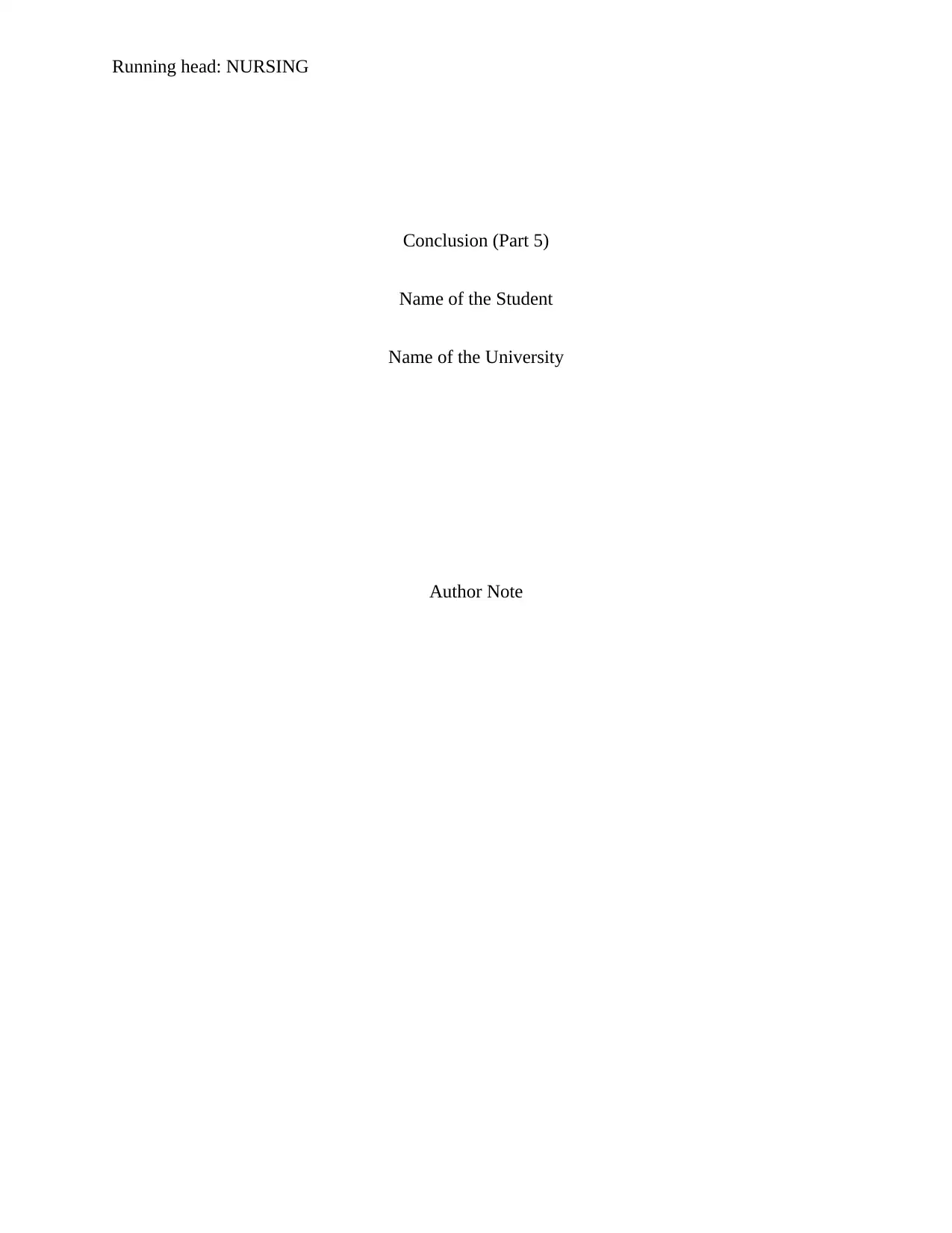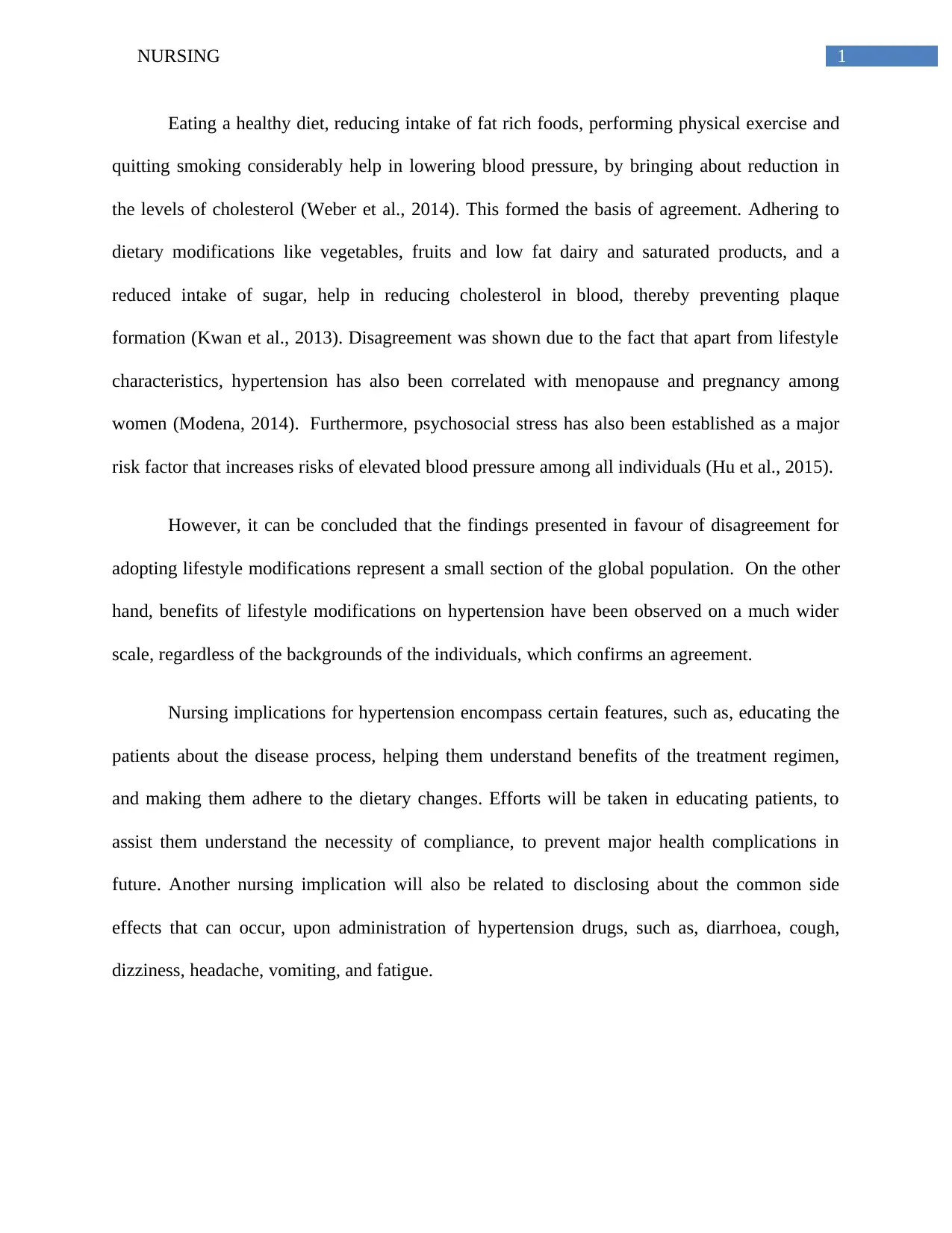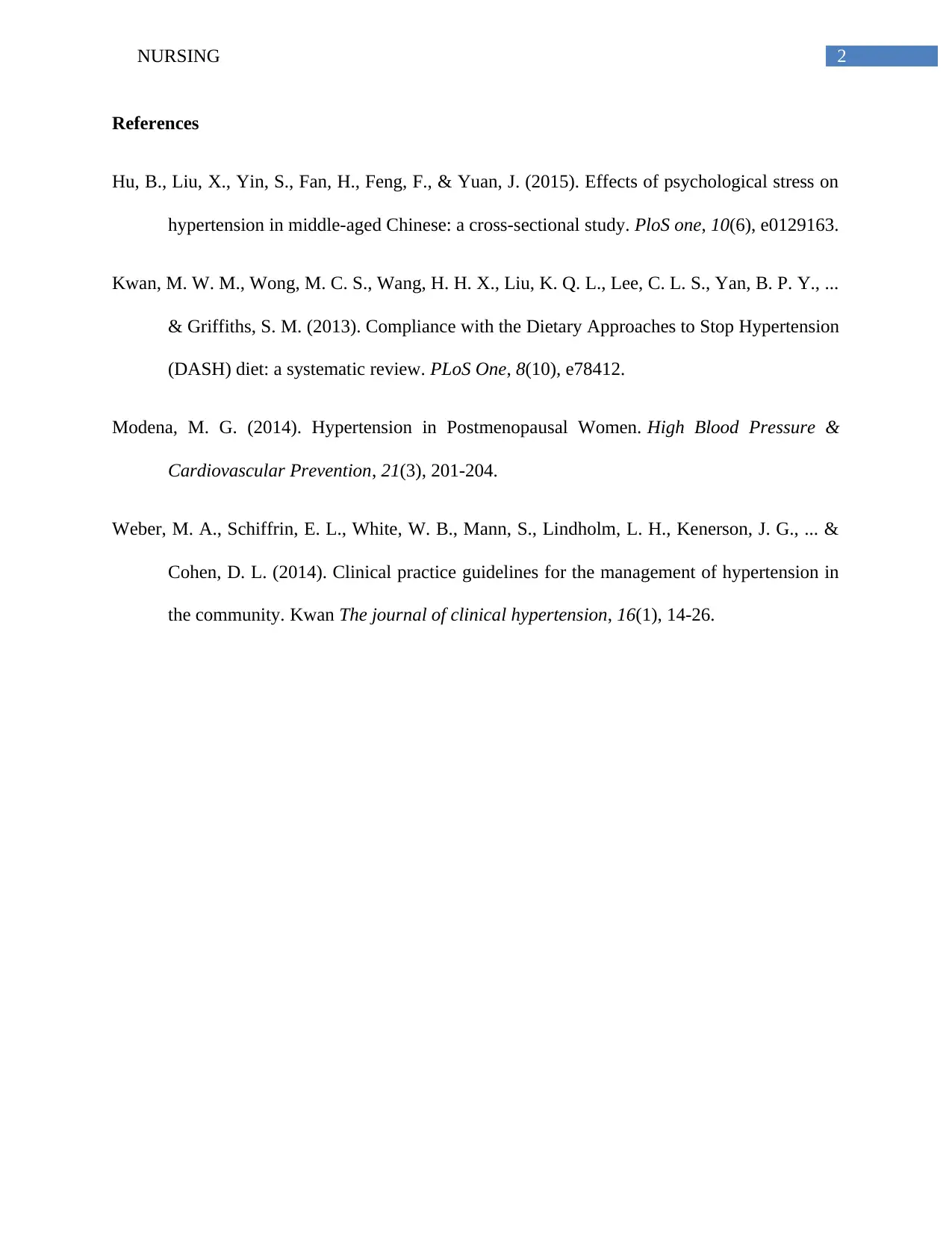Hypertension Management: A Nursing Conclusion on Lifestyle Impact
VerifiedAdded on 2023/06/12
|3
|556
|191
Report
AI Summary
This nursing report concludes that lifestyle modifications, such as a healthy diet, exercise, and smoking cessation, significantly lower blood pressure and cholesterol levels, aligning with the agreement. While disagreement arises due to factors like menopause, pregnancy, and psychosocial stress contributing to hypertension, the report emphasizes that the benefits of lifestyle changes are observed on a wider scale. Nursing implications include educating patients about the disease, treatment benefits, and dietary changes, alongside informing them about potential medication side effects like diarrhea, cough, dizziness, headache, vomiting, and fatigue. The report supports adopting lifestyle modifications, highlighting their widespread benefits in managing hypertension across diverse populations.
1 out of 3









![[object Object]](/_next/static/media/star-bottom.7253800d.svg)